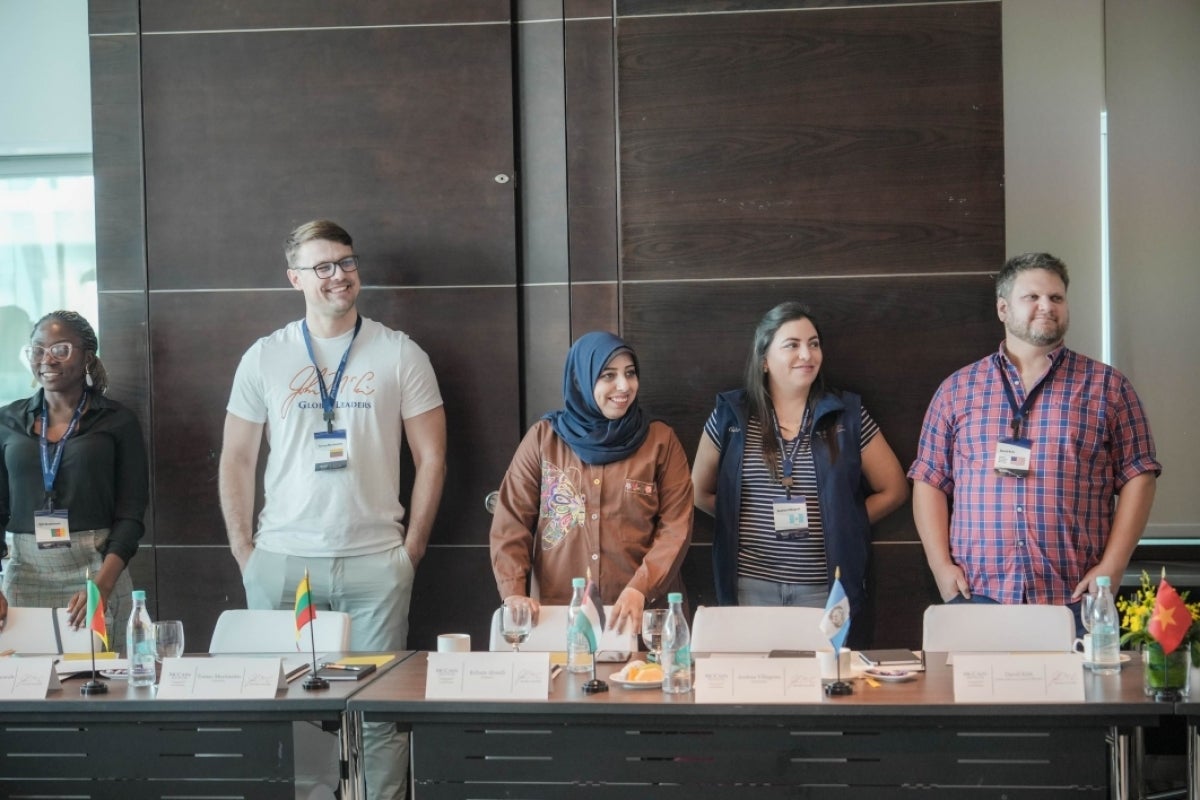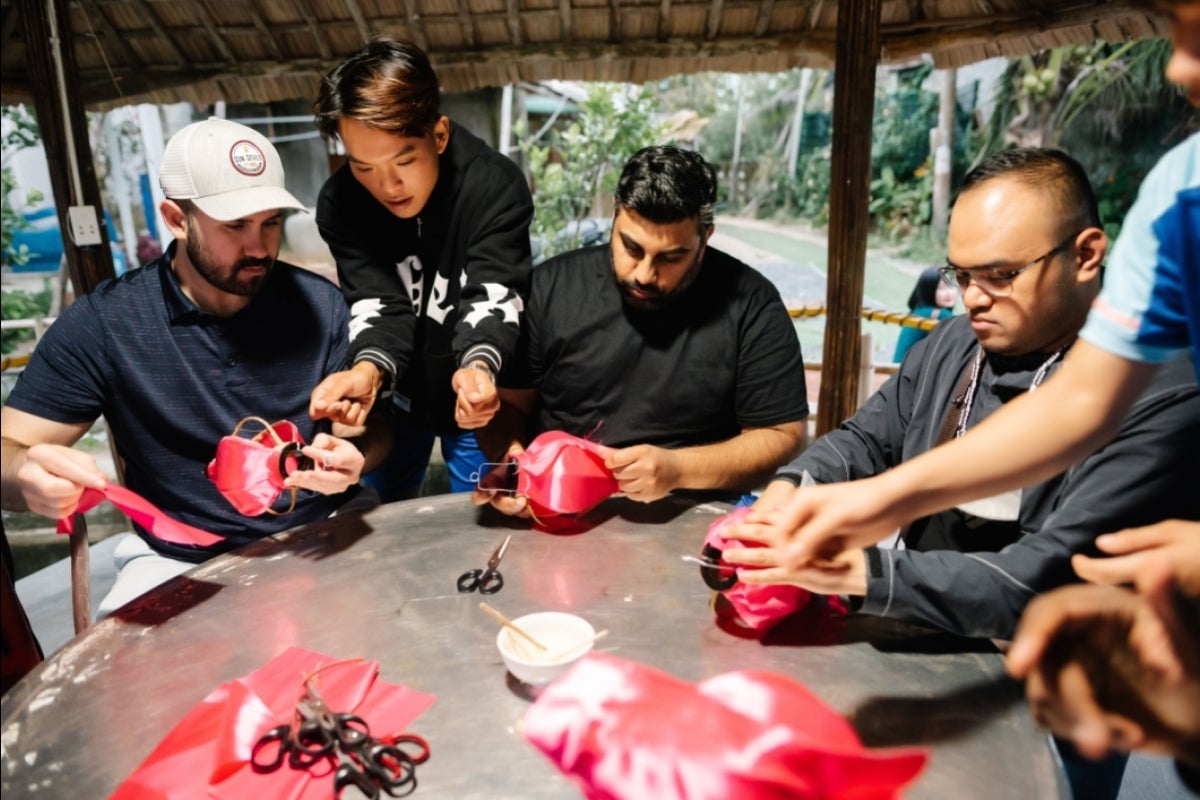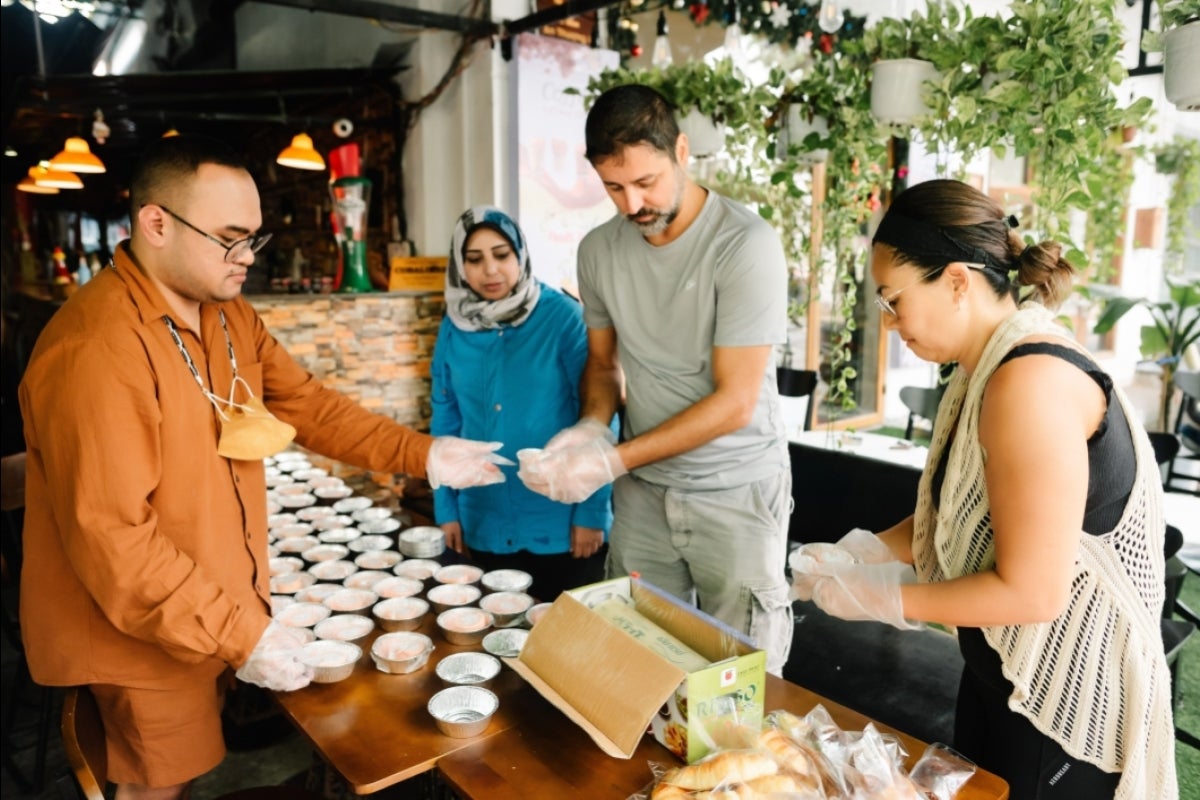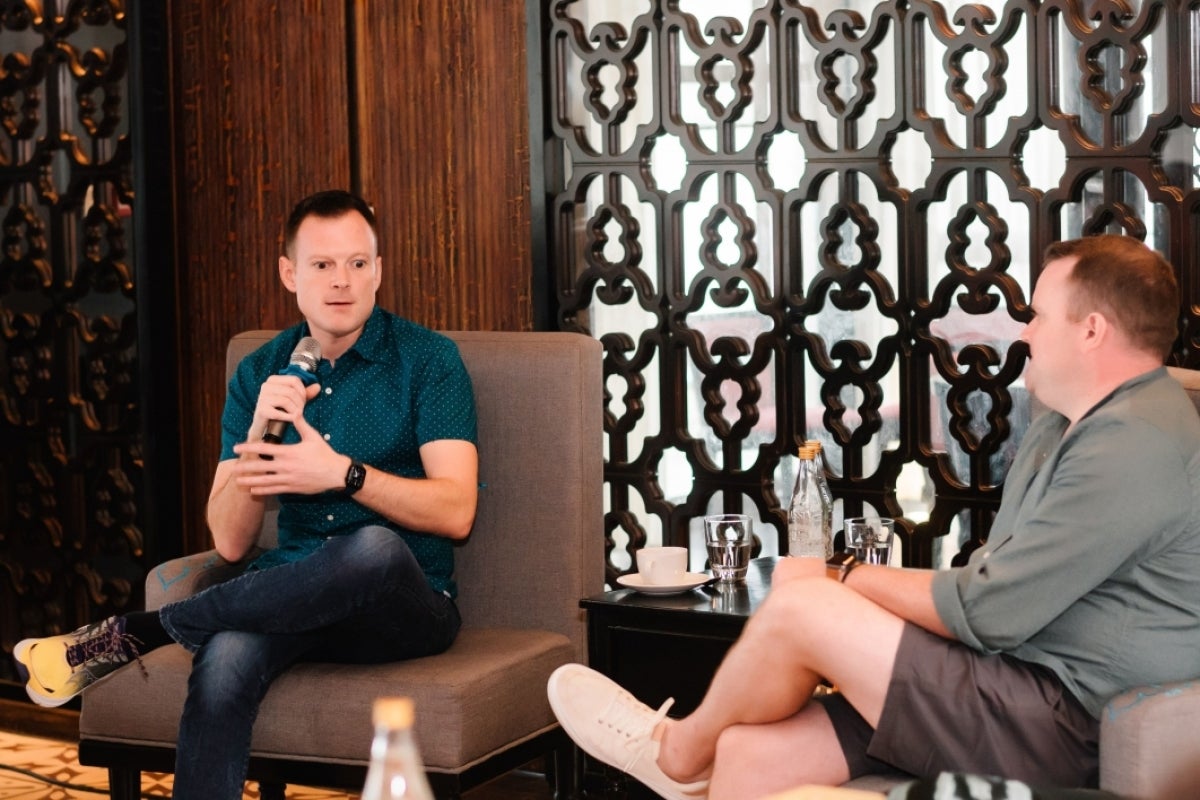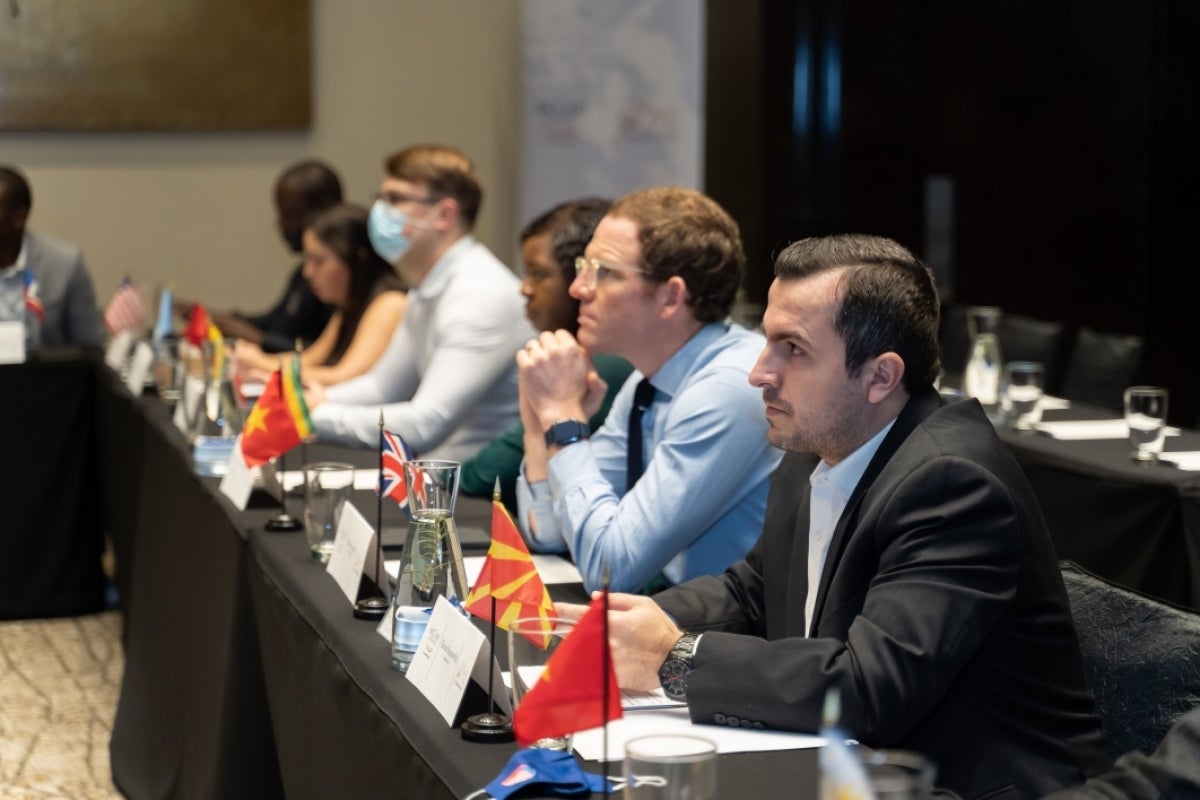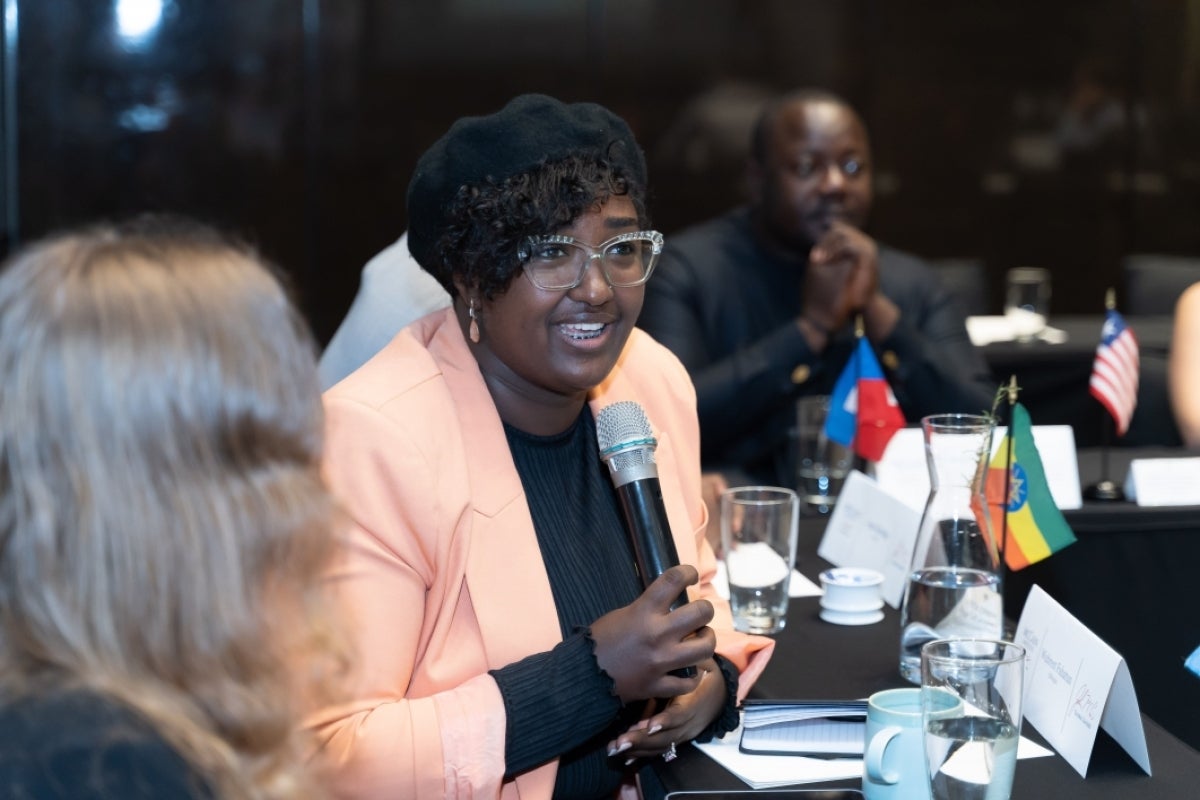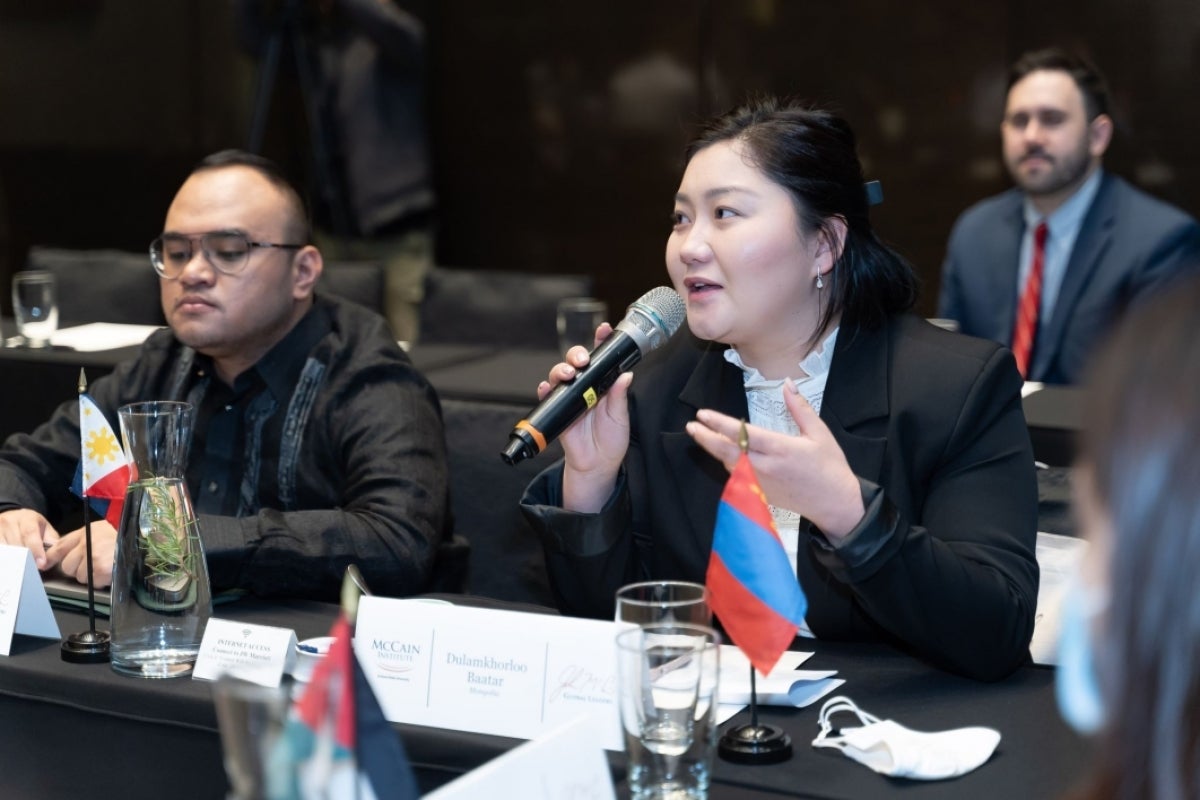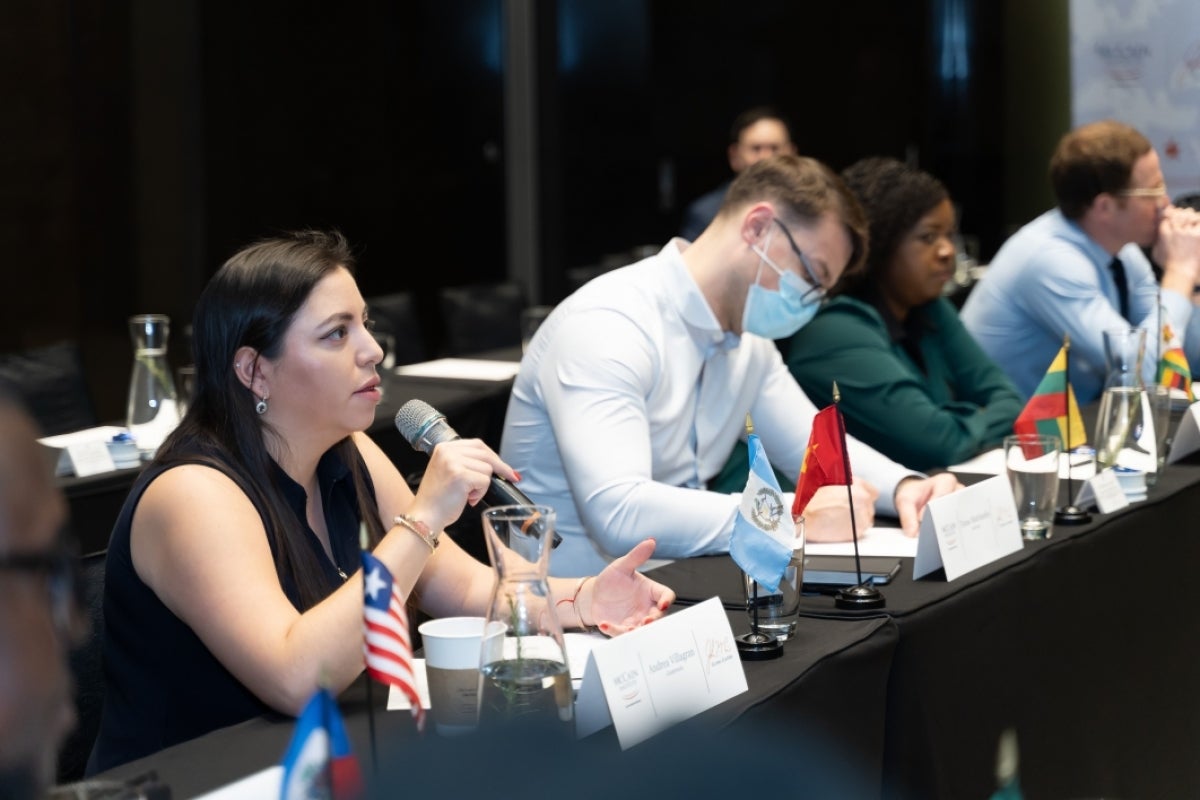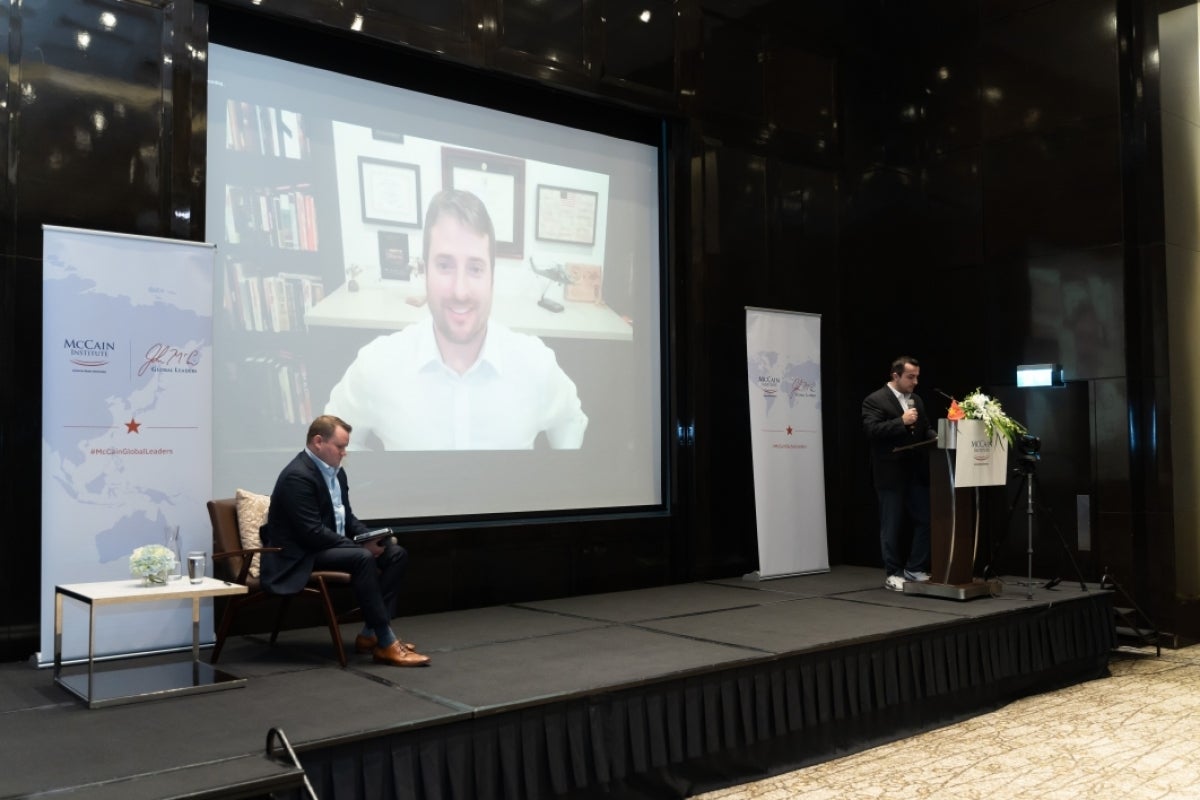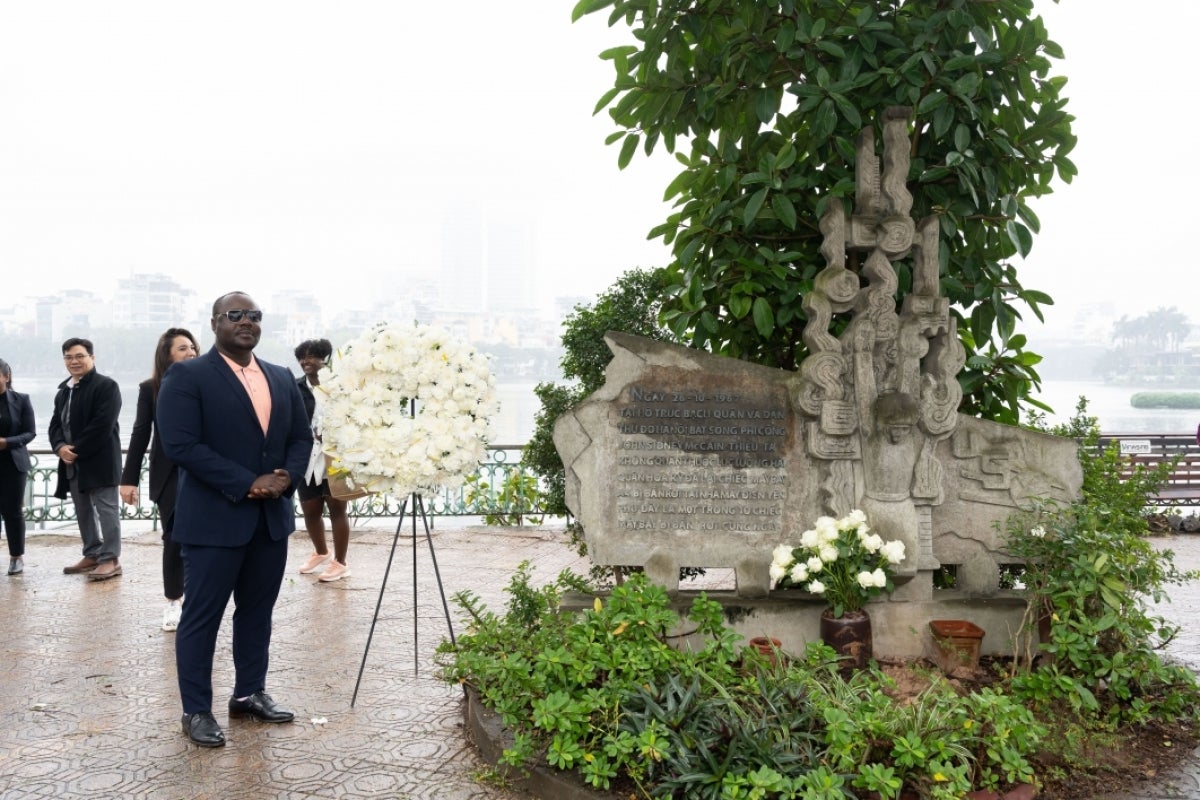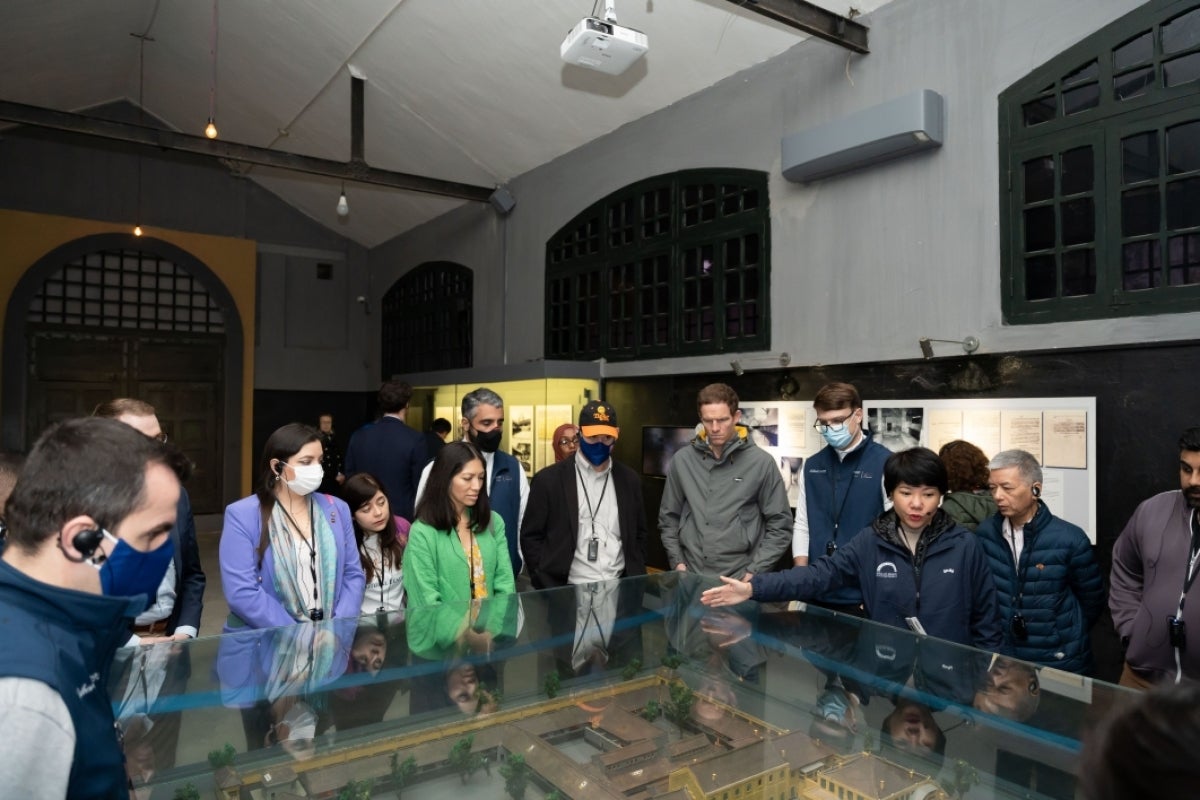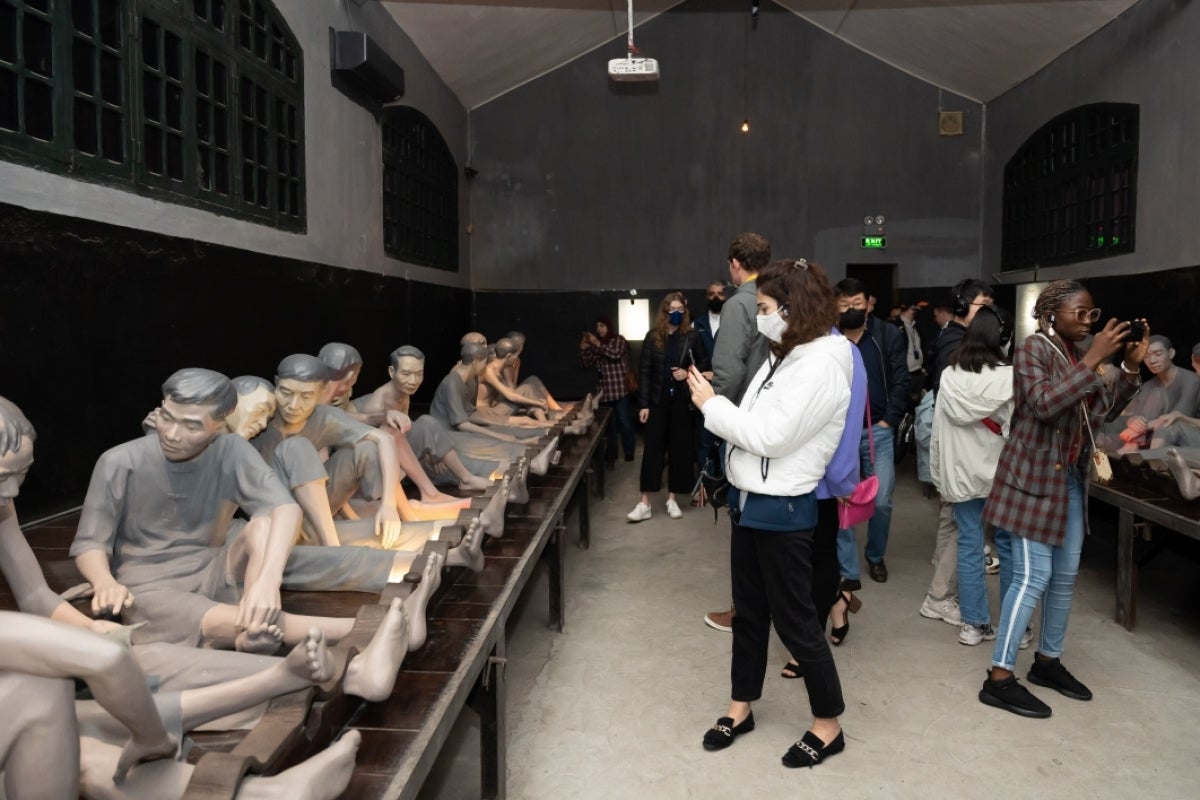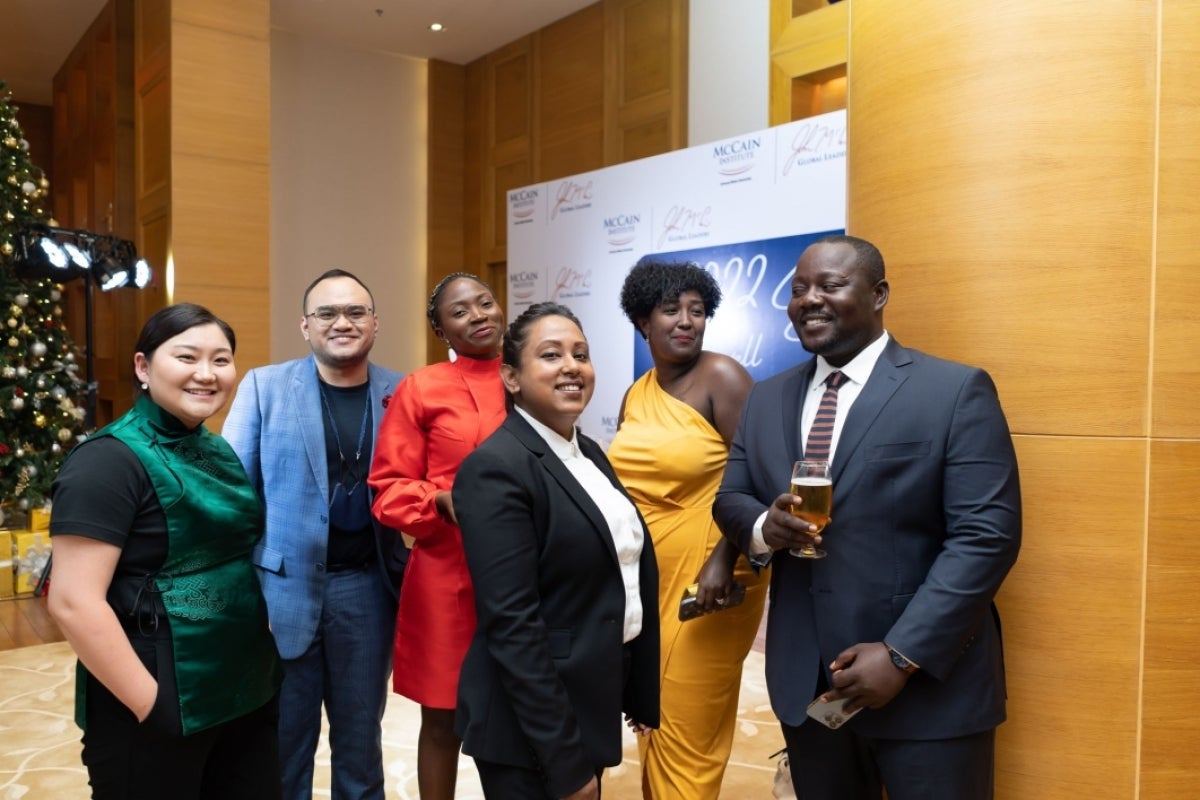McCain Global Leaders explore professional collaborations in Vietnam
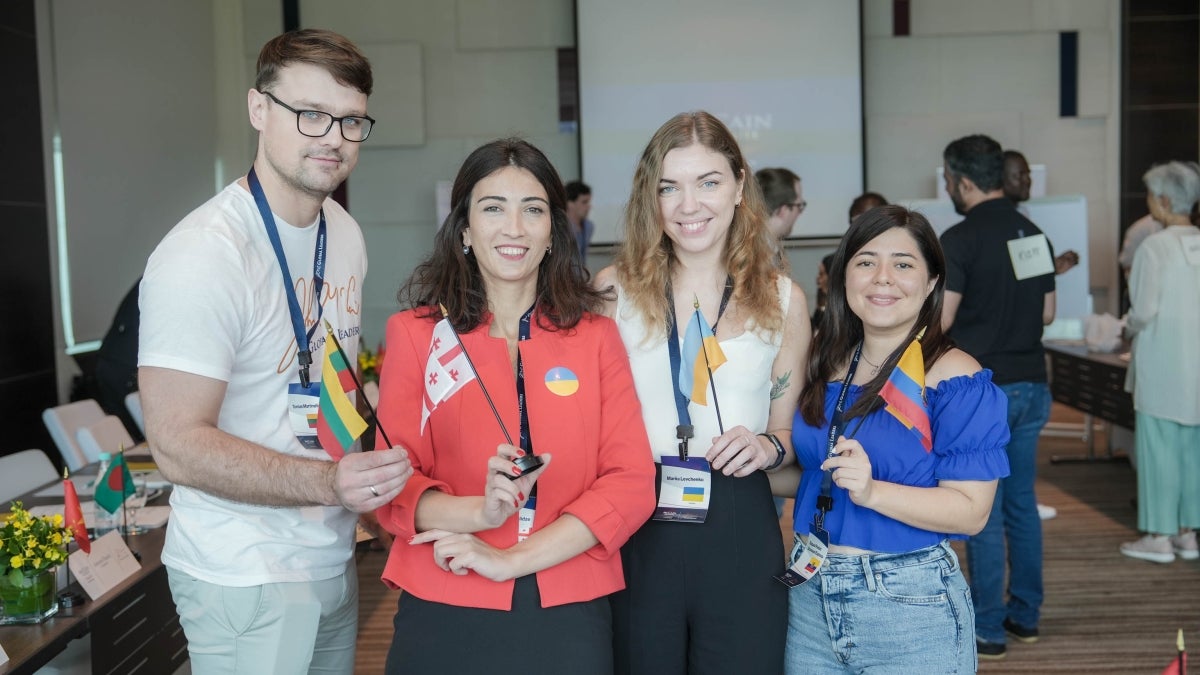
Mariia Levchenko and Cindy McCain (center) at the 2022 Legacy Experience in Vietnam. Photo courtesy McCain Institute
John McCain’s legacy in Vietnam runs far deeper than his time there as a prisoner of war. As a senator, McCain and his colleague and fellow Vietnam War veteran John Kerry led the outreach from the United States to Vietnam in 1995 that resulted in the normalizing of relations between the two countries.
Earlier this month, the 2022 cohort of McCain Global Leaders, a program of the McCain Institute for International Leadership at Arizona State University, and five members of the program’s Global Advisory Council traveled to Vietnam to learn more about how the late senator’s efforts have impacted the country. They participated in a wide-ranging tour of historically, culturally and economically significant cities and engaged with Vietnamese leaders from the public and private sectors.
Ho Chi Minh City
The 30-member McCain Global Leader delegation, hailing from 23 countries, began the 2022 Legacy Experience in Ho Chi Minh City (formerly known as Saigon), Vietnam.
Ho Chi Minh City serves as Vietnam’s business hub. There, the cohort engaged with leaders from corporations like Dow Chemical and JPMorgan Chase, and organizations like ASEAN and USAID, which facilitate interactions between American global companies and Vietnam.
In a discussion between Jean Sung, Global Advisory Council member and head of the Philanthropy Centre, Asia, for JPMorgan Private Bank, and Leon Toh, a Singapore-based impact investor, Toh shared insights about learning to balance the desire to be a force for good with the necessity of keeping an eye on profits and losses.
“You are living embodiments of service beyond self. Do it, don’t hesitate, just get on and do it. The sky is the limit,” Sung said.
This was the first opportunity for the 2022 cohort members to meet in person, since due to COVID-19 restrictions in early 2022, the cohort was unable to gather in Washington, D.C.
Da Nang
The delegation then traveled north to the seaside city of Da Nang, Vietnam, and for two days focused on service and culture. They took tours and hiked the famed Marble Mountain, which hosts one of the seven main Buddhist temples in Vietnam.
On their second day in Da Nang, the cohort teamed up with local organization Volunteer Da Nang to pack over 200 meals, including local noodles and soup from a local restaurant for kids in the nearby hospital who are battling cancer. This “refresher of the soul,” as a McCain Global Leader put it, allowed the team to bond and give back to a community in need.
“Service is important because I was once the needy one, and now, I have the opportunity to give back,” said Wubrest Fantahun, a 2022 McCain Global Leader from Ethiopia.
The delegation then gathered for a discussion on service led by Nate Mook, Global Advisory Council member and former World Central Kitchen CEO. Mook talked about his own background of service and touched on the challenges that he faced in starting and running World Central Kitchen. He touched on how to identify existing local structures and work to empower locals.
The legacy of John S. McCain in Vietnam
The final stop on the 2022 Legacy Experience was in Hanoi, Vietnam, where McCain was shot down in 1967 and spent the next five and a half years of his life primarily in the infamous Hỏa Lò Prison.
There, the cohort had the chance to speak with Lt. Jack McCain, son of the late senator, about his father’s views on Vietnam and the toll that serving a cause greater than oneself can take on those around you.
Over lunch, the cohort heard from Virginia Foote, who played a role in convening staffers from McCain’s and Kerry’s offices in order to foster diplomatic relations with Vietnam. She provided firsthand insights about the many long flights and lengthy meetings that she took part in with both senators.
Later that day, the delegation engaged with young Vietnamese leaders in an open discussion facilitated by and within the United States Embassy in Hanoi. The active debate focused on the meaning of civic engagement.
Finally, the delegation was joined by Cindy McCain, the U.S. ambassador to the United Nations Agencies for Food and Agriculture. Cindy McCain shared her insights on what they had learned about Sen. McCain in Hanoi that day and engaged with the cohort on the work she is doing on behalf of global food security.
Defining legacy
The landmark of the 2022 Legacy Experience began with a moving tribute at the John S. McCain Memorial in Hanoi, just beside the lake where he was shot in 1967. Remarks were read on behalf of the delegation before a wreath-laying ceremony.
“We mourn his absence, but we rejoice in his legacy,” said Elisa Massimino, Global Advisory Council member. “John McCain had a secret weapon in the struggle for freedom and dignity. It lives on in each of you.”
After the ceremony, the delegation visited Hỏa Lò Prison for a guided tour of the prison’s history, and were joined by Bui The Gang, a veteran of the North Vietnamese Army and an acquaintance of Sen. McCain. The tour of the prison offered insight into how the Vietnam war, and all wars, can look very different depending on the perspective.
Graduation
During a graduation ceremony at the end of the week, four members of the cohort gave speeches — one from each of the four regions that the leaders represent: MENA/Africa, Europe/Eurasia, Oceania and the Western Hemisphere.
Mook delivered the commencement address, where he urged the cohort to be the main characters in each of their extraordinary stories.
Each of the speeches reflected the sentiment that while it was Sen. McCain’s legacy that they were there to learn from, ultimately, the program is built to help each of the leaders forge their own legacies going forward.
Written by Patrick McCann/McCain Institute
More Law, journalism and politics

Opportunities and risks of AI in the court system
“Science and innovation have always been an important part of ASU Law,” said Stacy Leeds, dean of Arizona State University’s…
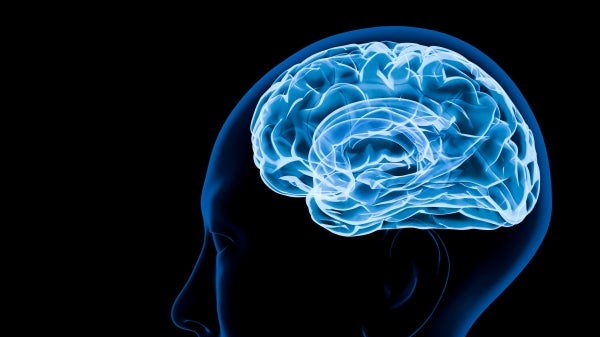
Law and addiction: How new science is impacting the justice system
For years, people who struggle with drug addiction have often been considered weak or in need of incarceration by the general…

Exhibit uses rare memorabilia to illustrate evolution of US presidential campaigns
After one of the most contentious elections in history, a new museum exhibit offers a historical perspective on the centuries-old…
